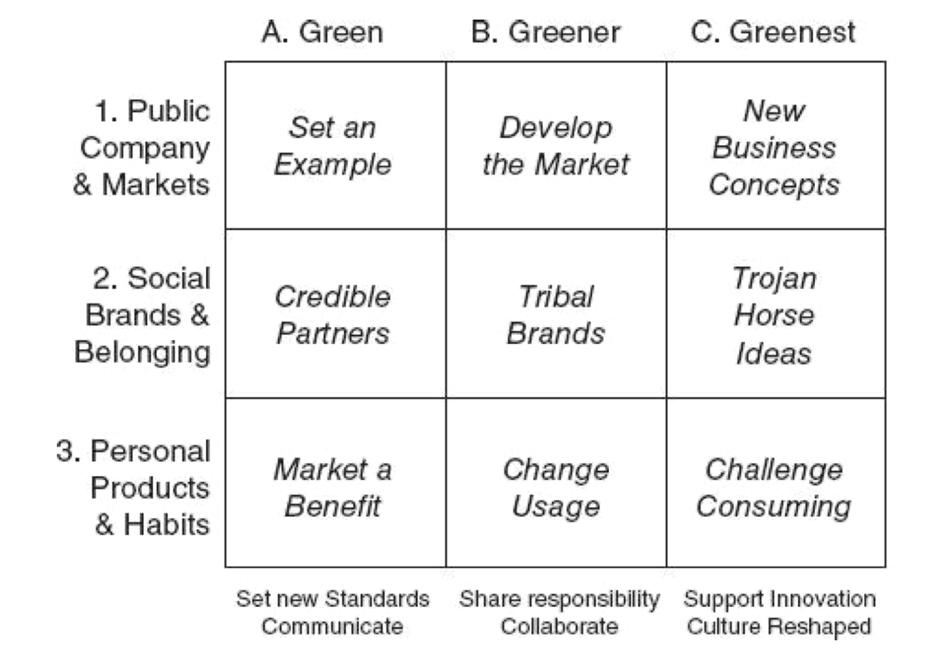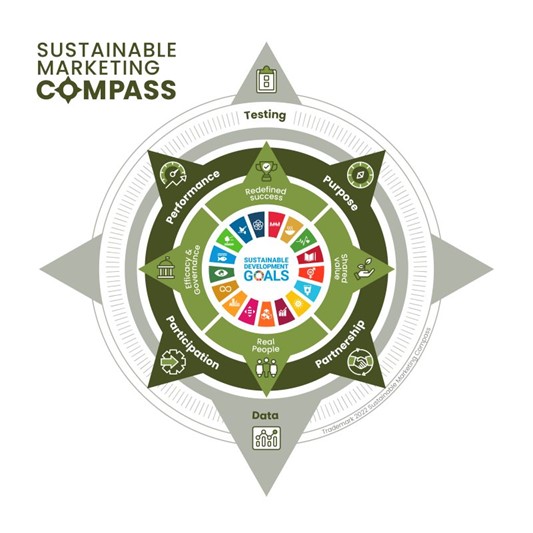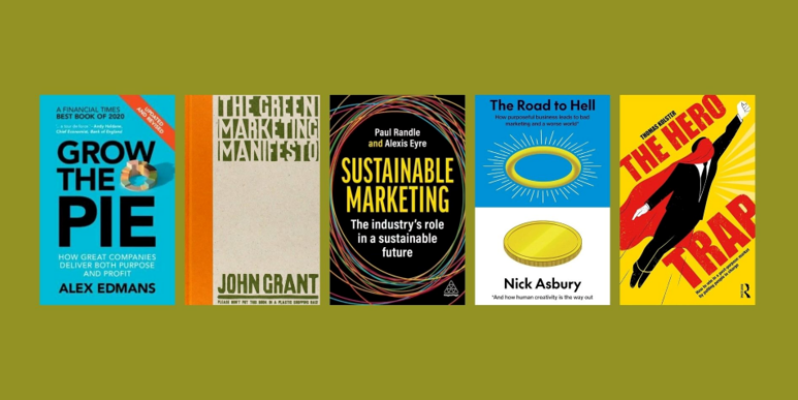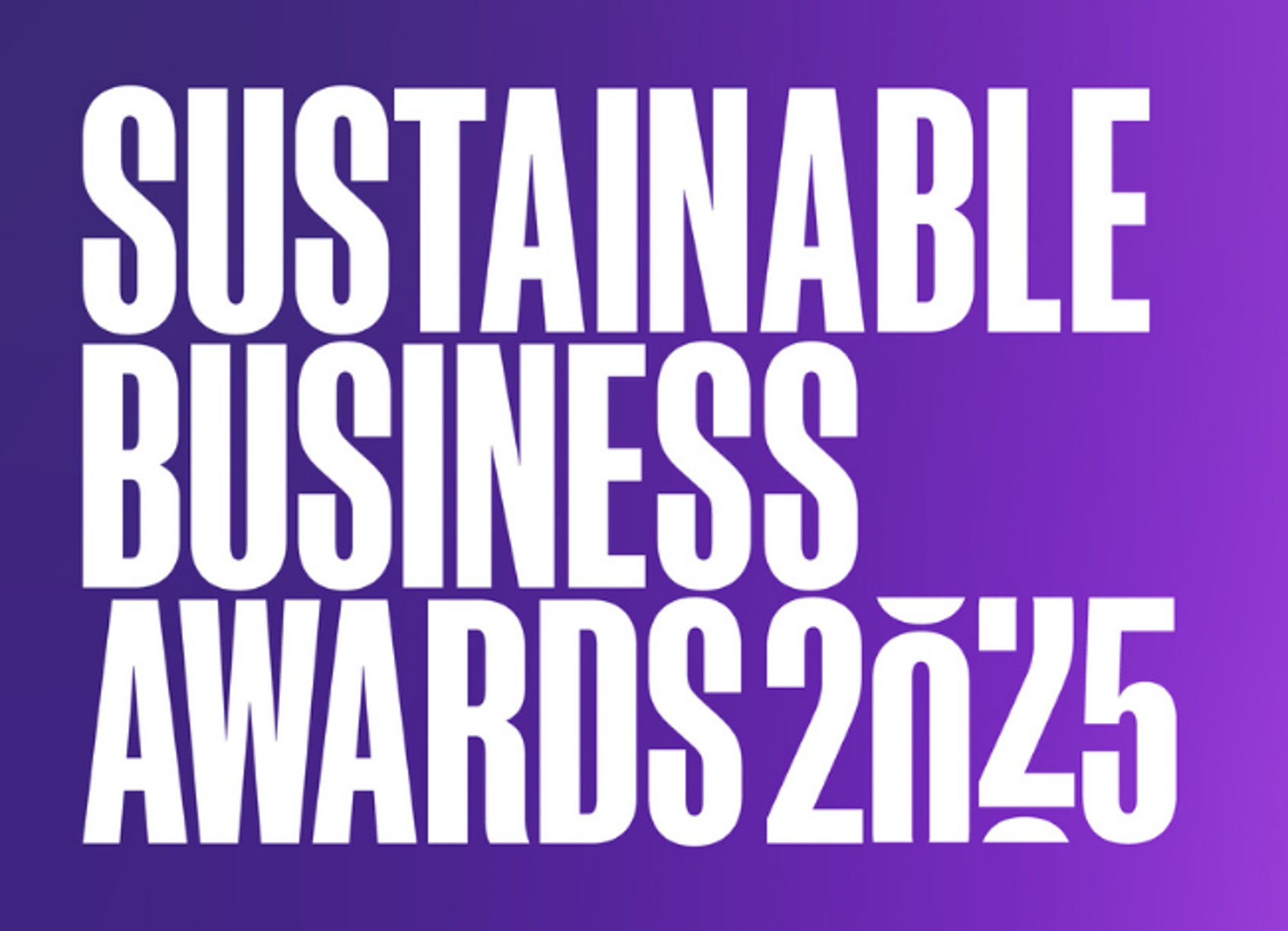Written by guest author and GoodSense team member: Neil Krikul
Tackling a wicked problem, a problem with no single perfect solution, like sustainability issues is no easy quest.
It requires critical thinking, to question the method, system thinking, to understand how each factor interacts with each other, and integrative thinking, to learn from diverse perspective and come up with a set of choices or solutions that benefits all in the long-term.
In this article, we have picked five books that will challenge your thinking as a change maker. While the theme is mostly marketing-based, we’re all marketers in some way, as Seth Godin, a well-known author in marketing, described marketing as ‘anything that touches the market’.
Like it or hate it, marketing is one of the most influential disciplines in creating behaviour change and cultural shifts.
As a change maker, the people that we want to change, or influence, is our market.
1. Grow the Pie : How Great Companies Deliver Both Purpose and Profit by Alex Edman
Edman’s book is a great start to shift the mindset. In business, it doesn’t always need to be a win-lose game.
Edman argues that companies can achieve sustainable growth and societal benefits by focusing on creating value (growing the pie) for, not just shareholders, but stakeholders such as customers, employees, society and the planet.
On the other hand, when companies take a slice of, rather than grow, the pie by exploiting its people, society or the planet, they will face a pushback through regulations and punishments. Then, “Companies respond by trying to bypass the laws. And the conflict continues.” Edman said in the book.
This extends beyond adopting an increasingly popular Corporate Social Responsibility (CSR) program, which most firms treat as a to-do list. Pie-growing mindset must be genuinely embedded within the organisation to be sustainably effective.
Lastly, Edman also claimed that profits shouldn’t be the sole reason for the company’s existence. Just like breathing, we need to breathe, but it’s not our sole reason for living. Instead, shared purpose within an organisation creates a sense of belonging and inspires more action, innovation and commitment.
2. The Green Marketing Manifesto by John Grant
There are three levels of impact that brands can make beyond operating profitably, and John Grant’s The Green Marketing Manifesto gives us a framework to start with.
The book proposes a green marketing grid that combines:
- The three levels which marketing operates (product benefit, emotional/tribal benefit and cultural leader)
- And the three levels of success (commercial – green, ethical – greener and cultural success – greenest)

Figure 1 The Green Marketing Grid. Source: John Grant
The book then goes into detail about what each strategy involves.
And as the book has shown, marketing has the power to change behaviour, culture and the world. Isn’t that what we need to tackle the global challenge?
One of the applicable strategies from the book is to ‘educate’ and inform people rather than talking about the brand’s achievements, because doing so could put brands on a spotlight to be investigated for greenwashing, even intentionally.
Instead, when you educate, you become a thought leader that brings others along with you.
3. Sustainable Marketing: The Industry’s Role in a Sustainable Future by Paul Randle and Alexis Eyre
The world is changing the way it operates, to become more sustainable, it is time marketers do too.
Based on latest research in both effective marketing and sustainability communications, the book provides thought-provoking insights to inspire thinking and actions such as:
- Finance as a good proxy for well-being outcomes is possibly the biggest single driver of our current unsustainability.
- Marketing sometimes helps businesses make money at the cost of consumers’ well-being with no duty of care. Customers may want that extra-large meal but they also need better health.
- Marketing waste is hard to track, and is often not tracked, which is why it contributes to a shocking amount of environmental impact.
This is where the Sustainable Marketing Compass, proposed in the book, comes in, to help brand embed sustainability at heart, solidify strategic foundations and implement the approach, no matter where the business is, on the sustainable marketing journey.
Check out the book to find out more detail.

Figure 2 Sustainable Marketing Compass. Source: Paul Randle
4. The Road to Hell: How purposeful business leads to bad marketing and a worse world and how human creativity is the way out by Nick Asbury
To tackle the wicked problem, it is essential that we learn from diverse perspectives. Asbury’s book will give you just that, as long as you keep an open mind.
The book criticises brands that mix themselves up on the political spectrum and covers how:
- Purpose-driven marketing leads to worse marketing and, therefore, worse social outcomes.
- Public, or for-profit, companies are not set up to solve societal issues due to the pressure to deliver financial performance to shareholders.
While the arguments are debatable, Ashbury forces us to think more critically on how we should approach purpose-driven business operation and marketing to ensure effective outcomes for all.
5. The Hero Trap: How to Win in a Post-Purpose Market by Putting People in Charge by Thomas Kolster
Written by a sustainability champion, and building on the previous point on how purpose leads to worse marketing and outcomes, Kolster proposed an alternative to help brands inspire change more effectively.
“Try to fly like a superman, and you will come down like a tin of soup.” Said Kolster.
The proposal is that brand should stop putting themselves first in talking about their ‘why’, and instead, focusing more on the ‘who’, or the customers, and talk about how they can empower them to achieve their ideal self, in a good way.
He suggested that brand shifts from purposeful commercial to transformative commercial, moving from being a self-obsessed evangelist to a real leader, by making the customers the hero of the story.
At the end of the day, the primary role of the brand is to be there when their customers need them.
Here’s our own GoodSense blog on the exact same need for target audience focus ahead of ‘why’ in communications, from back in 2018.
Special mention
Want more? Check out
- The Future of Purpose-Driven Branding: Signature Programs that Impact Society, Inspire, and Enhance a Business by David Aaker
- Net Positive: How Courageous Companies Thrive by Giving More Than They Take by Paul Polman and Andrew Winston
- The Language of Sustainability by Kantar
Being a change maker involves being a leader that brings everyone else along. A good leader doesn’t force change but adapts their approach to their audiences, to meet them where they are, which is more likely to lead to sustainable change. They seek first to understand.
Sustainability is an issue that affects everyone, that’s why it is an area where we never stop learning, to ensure that the proposed solution really does benefit all in the long term.

Author: Neil Krikul
LinkedIn: Neil Krikul | LinkedIn
Email: neil.krikul@goodsense.co.nz
Get in touch if you need help communicating your sustainability or brand strategy to make more impact.













